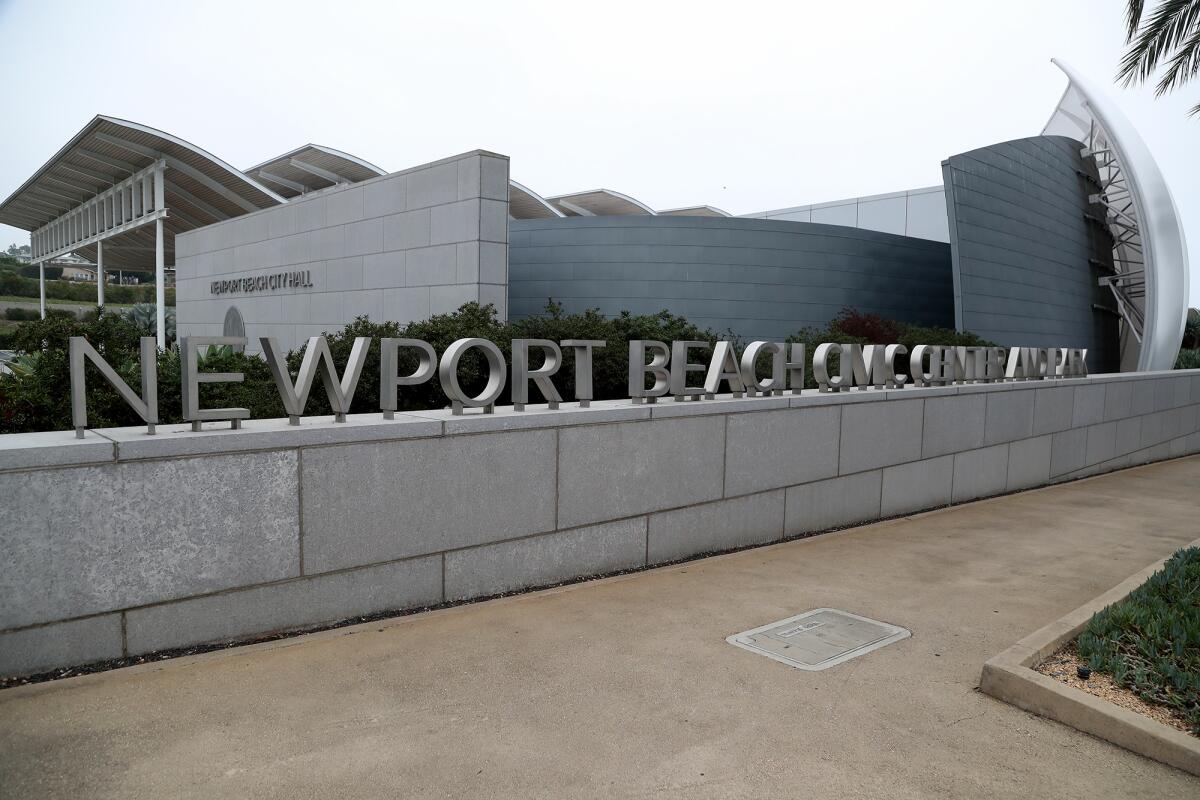Newport Beach fractional home ownerships might be defined as timeshares

- Share via
Change appears to be on the horizon for participants of fractional ownerships of Newport Beach residential properties as the city’s definition and regulations around timeshares will likely be expanded to include them, according to direction given to city staff by the Newport Beach City Council Tuesday night.
Fractional ownership, according to a staff report prepared when the issue was first addressed in a September study session, is a practice in which several owners band together to purchase a property. They then divvy up the time they’re each allowed to use it throughout the year based on each party’s respective percentage of ownership.
There are about 11 such properties in Newport Beach, primarily along the Balboa Peninsula, on Balboa Island and in Corona del Mar, according to city officials.
Full-time residents who objected to the fractionally owned properties in their neighborhoods complained last year to Diane Dixon, then a member of the City Council, that the turnover rates of the homes’ occupants created extra traffic, noise and parking issues — all very similar concerns to those raised about short-term rentals in the city, for which Newport Beach has implemented greater restrictions than had previously been in place.
Following the City Council’s September session on fractional ownerships, the matter of how best to categorize them was sent to the Planning Commission for its consideration. An ad hoc committee studying the issue proposed the properties be defined as timeshares, which would then bind them to the same regulations that guide timeshares. That means fractionally owned properties would be prohibited in all residential zones of the city.
Additionally, they would face other restrictions that deal with unit maximums, development agreements and require sales, operating, management and contingency plans, in step with the approaches of other California cities such as Palm Desert, Truckee and St. Helena, the latter of which is in active litigation with real estate broker and property manager Pacaso over fractional ownerships.
These suggestions were brought to the City Council Tuesday night as an agenda item, drawing many members of the public who stood up to voice their discontent with the fractional home ownerships, even as some acknowledged that they could understand why people wanted to live in Newport Beach even if it was only part time.
For nearly an hour, residents weighed in on what they thought should be done about the issue. While most who spoke were against the practice, some participants in fractional ownership properties within the city also turned out to say they felt their part-time homes shouldn’t be considered as timeshares, noting that they contribute to the local economy when and while they occupy their properties. Some were met with jeers from a nearly full room.
Several speakers asked the City Council to consider adopting regulations for properties that might be grandfathered in, if and when the definition of fractional ownerships would fall under the umbrella term of timeshare properties.
Councilwoman Lauren Kleiman said she viewed fractional home ownership as a “market disrupter,” similar to Uber, noting that she was also cognizant that Newport wasn’t the only jurisdiction working through how to contend with the issue.
“What we know is we cannot preclude owner occupants from purchasing property in an LLC, nor do I think we want to do that. We cannot prevent property owners from hiring a company to manage their properties, nor do I think we want to do that,” Kleiman said. “What we can look at is the use of the property and whether it’s consistent with the neighboring uses as intended by our general plan and our zoning code. This is obviously a very transient use that has the potential for impacts that can be differentiated from the typical residential use in our neighborhoods.
“What I’ll say is, for the record,” Kleiman continued, “I’m not confident that the law will be on our side in the interpretation of land use here, but what I am clear about from the many, many, many emails that we received and from all of you here tonight is the community’s desire to disallow this type of use to the extent that we’re able.”
At the close of the discussion — and to cheers from the audience — the council voted unanimously to send the matter back to the Planning Commission for further discussion.
In a statement from a Pacaso spokesperson on Wednesday, the company said, “Pacaso is not a timeshare. We help families co-own second homes, an established practice in Newport Beach and around the country. Co-ownership has been used by friends, families and individuals to own real estate for generations.
“Many existing homes within Newport Beach are co-owned through a multiowner arrangement like an LLC or trust, no different than how Pacaso homeowners own their homes,” the statement read. “It is important that property rights are protected for all residents in the city, full time and part time. Pacaso will continue to engage with city officials to help them correctly understand our model and how co-ownership can benefit the community.”
All the latest on Orange County from Orange County.
Get our free TimesOC newsletter.
You may occasionally receive promotional content from the Daily Pilot.






